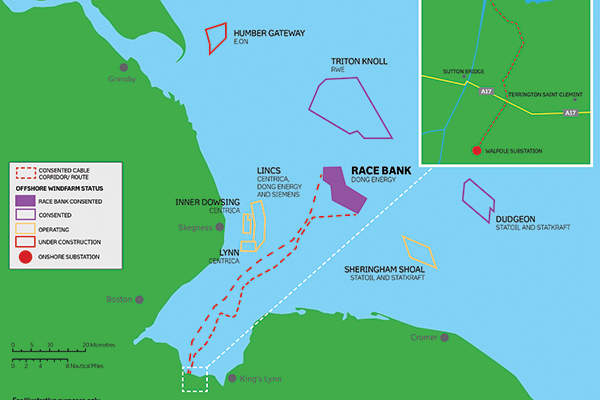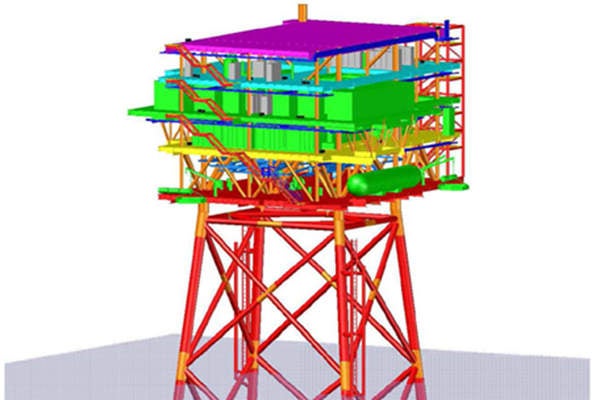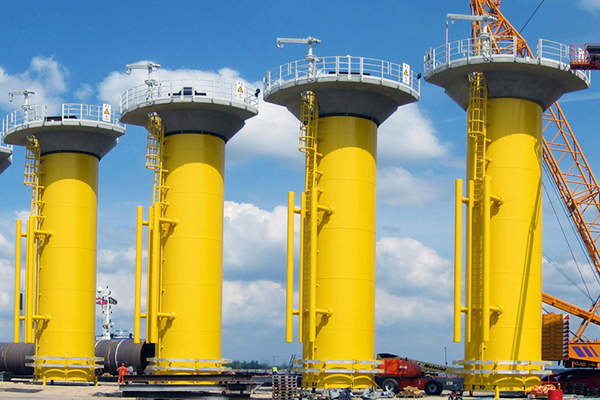The 580MW Race Bank, developed by Ørsted (formally DONG Energy), is located in the Greater Wash region, approximately 27km off the UK east coast. It is one of the biggest offshore wind farms in the world.
Ørsted acquired the project from Centrica for £50m (approximately $81m) in December 2013. The project is owned by Ørsted (50%), Macquarie European Infrastructure Fund 5 (25%), Macquarie Capital (12.5%) and Sumitomo Corporation (12.5%).
The Crown Estate had awarded a 50-year lease to Centrica to build the Race Bank wind farm in 2004. The development consent for the project was awarded in 2012. Onshore construction began in 2015, followed by offshore construction in 2016 and turbine installation in May 2017.
The Race Bank wind farm was commissioned in February 2018. With an estimated operational lifespan of 25 years, the Race Bank wind farm will produce electricity sufficient for more than 50,000 UK homes. It is further estimated to offset more than 830,000t of CO₂ emissions a year.
The offshore wind project is located approximately 17m (27.3km) from Blakeney Point on the North Norfolk Coast, and approximately 17.4m from the Lincolnshire coast at Chapel St Leonards. It is approximately 32km off the British eastern coast and extends over approximately 75km².
The wind farm consists of 91 Siemens wind turbines of 6MW each. Each turbine has a rotor diameter of 154m and is erected on monopile foundations in water depths ranging between 6m and 26m.
A2SEA’s purpose-built offshore installation vessel, Sea Challenger, was used for the installation of the turbines.
Offshore and onshore substations at Race Bank
The wind farm comprises three offshore substations and one onshore substation, which was completed in 2016.
Alstom Grid’s DS Agile technology, a next-generation digital control system for smart substations was installed at the project. The DS Agile system includes advanced situational awareness features and a MiCOM P40 Agile protection system, which enables it to protect, monitor and control the assets.
The onshore substation is located adjacent to the Walpole Substation and consists of all the equipment to transmit power from the offshore substation to the national grid network.
Transmission of electricity generated by Race Bank
The electricity generated by the wind farm is being delivered to the onshore substation using export cables. The cables have a landfall east of the Nene River and approximately 3.7m (5.95km) north-north-east of Sutton Bridge.
Cables are buried onshore for 6.8m (11km) from the landfall point to a new substation extension located directly adjacent to the existing substation at Walpole, Norfolk.
Contractors involved with the offshore wind project
Siemens Wind Power was awarded the contract for the supply, erection and servicing of the wind turbines.
UK-based JDR supplied the subsea power cables. Its contractual scope includes the design and manufacture of 110km of 36kV inter-array cables as well as accessories, including hang-offs, electrical T-connectors and cable cleats.
J Murphy and Sons was awarded a £21.8m ($34m approximately) contract for the construction of the onshore substation. WSP provided civil design support for this.
Jan De Nul Group was engaged for the installation of subsea export cables from the landfall to two offshore platforms as well as that of the interlink between the offshore substations.
The contract for the supply of 91 transition pieces for the wind farm was awarded to Bilfinger Mars Offshore (BMO). DONG Energy engaged Atkins to provide a detailed substation design for the project.
NKT Cables was contracted for the supply of more than 150km of 220kV high-voltage export cable systems. The submarine cables were delivered in 2017 in three phases.
Alstom was awarded the substation automation contract, while Seaway Heavy Lifting was contracted for the offshore substation transportation and installation. Dalcour Maclaren was appointed to advise on land rights in relation to the wind farm.






